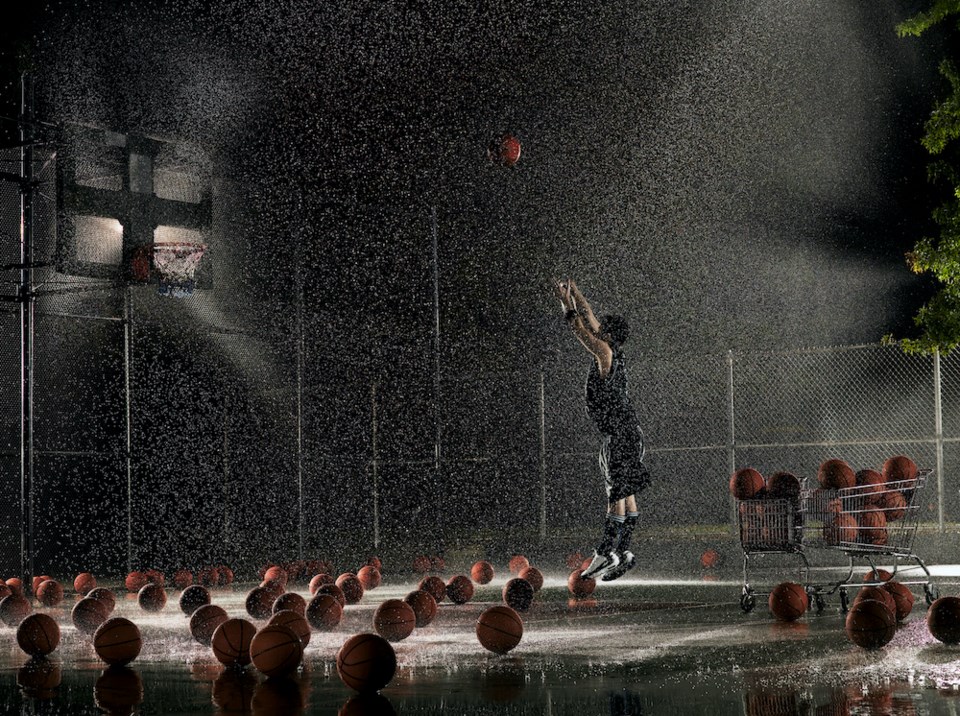It is said that only two things are certain in life: death and taxes. The idiom has long outlived its most famous reciter, Benjamin Franklin, to the point where many will add a third part to the phrase—death, taxes and insert whatever you feel strongly about.
I’ll give it a go. Three things are certain in life: death, taxes, and failure.
After all, no one wins at everything, every time. Even those who seemingly possess every talent, experience and ally required for success in a given realm can fall short. We are human, and failure is part of the human condition.
Hope you enjoyed that philosophical beginning to this piece. I’m still a sportswriter, so here comes the sports anecdote.
On April 26, the Milwaukee Bucks dropped out of the NBA playoffs with a 128-126 overtime loss to the Miami Heat. For all you non-basketball fans: this was a major upset, because the Bucks had won 58 out of 82 regular-season games this year—more than any other NBA team. Conversely, the Heat had won just 44 games and entered the playoffs as a No. 8 seed.
Yet, the Heat managed to overcome the Bucks in just five games during their first-round postseason matchup en route to an NBA Finals appearance.
Eric Nehm, a staff writer for The Athletic, asked Milwaukee superstar Giannis Antetokounmpo if he viewed this season as a failure. The 2021 NBA MVP took umbrage with Nehm’s query.
“You work towards a goal—it’s not a failure. It’s steps to success,” Antetokounmpo said as part of a longer quote. “I don’t want to make it personal. There’s always steps to it. Michael Jordan played 15 years, won six championships. The other nine years was a failure?”
Poise under pressure
Antetokounmpo’s words irked some people. A close friend of mine criticized him for seemingly refusing to be accountable for his team’s untimely downfall. My friend argued that expectations matter, and since Milwaukee was favoured to win it all this year, they crashed and burned and we should all admit it.
Sure, the Bucks did fail in one sense. They did not achieve their goal, despite having the requisite talent and experience to win an NBA championship. Antetokounmpo, as one of the league’s best players, is partly to blame for this outcome.
The problem is, too many people view short-term results as the be-all and end-all.
No doubt many frustrated Bucks fans and cynical pundits expected their superstar to walk into that postgame press conference as dejected as if he’d lost his family. They may have wanted him to spew out grim platitudes about how utterly he and his teammates had squandered a golden opportunity.
Yet I, for one, respect Antetokounmpo’s poise in the detritus of defeat. I believe his words reflect his capacity to learn from failure.
Obviously, major league sports are cutthroat. Individuals who lack competitive drive don’t belong and can’t survive in that world. Such competition can propel people to greatness—but it can also drown them in an ocean of aggressive delusions.
No NBA team has ever won all 82 regular season games, and none ever will. Nobody is likely ever to duplicate the Boston Celtics’ record of eight consecutive championships in the 1960s, back when the league had just eight or nine teams as opposed to 30 today. Similar things are true about other fields: no person or entity can remain undefeated when many are committing time, talent and effort towards the same goal.
How winning is done
So, what do real champions do? They keep it all in perspective, realizing that short-term pain does not preclude long-term gain. Every successful person has failure as part of their story, and each of their setbacks was a step on the road to triumph.
Here’s an example from my life, albeit one far less dramatic than the Bucks’ playoff collapse. Last fall, I applied for a part-time sports communications position at the University of Calgary. It should have been a layup. I had spent three or four years as a volunteer sportswriter on campus. I knew the teams, and some of them knew me.
Add to that a master’s degree in sports journalism and experience covering March Madness and Big Ten college football—U.S. events many times more prestigious than any Canadian varsity sport ever will be.
I interviewed well and everything, but they didn’t give me the job. “How could I possibly earn a worthwhile career opportunity,” I thought, disillusioned, “when my own alma mater won’t accept me?”
Fortunately, my support system encouraged me to keep going. Mere weeks later, I discovered a job opportunity for the publication you’re currently reading.
It’s all too easy for bystanders to throw darts when a public figure swings and misses, but that’s never the full story. Life is a river of interconnected moments, not a display case of isolated ones that don’t affect each other. Perhaps Rocky Balboa said it best in his scripted but very real words about facing failure:
“Nobody is gonna hit as hard as life, but it ain’t about how hard you hit. It’s about how hard you can get it and keep moving forward. How much you can take and keep moving forward. That’s how winning is done!”




